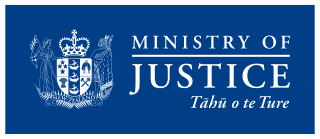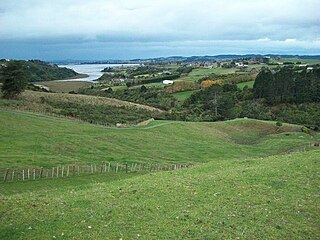| Litter Act 1979 | |
|---|---|
 | |
| New Zealand Parliament | |
| |
| Legislative history | |
| Passed | 1979 |
| Status: Current legislation | |
The Litter Act 1979 is an Act of the New Zealand Parliament. This Act is administered by the Ministry for the Environment.
| Litter Act 1979 | |
|---|---|
 | |
| New Zealand Parliament | |
| |
| Legislative history | |
| Passed | 1979 |
| Status: Current legislation | |
The Litter Act 1979 is an Act of the New Zealand Parliament. This Act is administered by the Ministry for the Environment.
The Litter Act was established to make better provision for the abatement and control of litter. The Act is a basic mechanism for local government to prevent littering.
The functions of the Act include:
This Act is administered by the Ministry for the Environment.

New Zealand is divided into sixteen regions for local government purposes. Eleven are administered by regional councils, and five are administered by unitary authorities, which are territorial authorities that also perform the functions of regional councils. The Chatham Islands Council is not a region but is similar to a unitary authority, authorised under its own legislation.

English law is the common law legal system of England and Wales, comprising mainly criminal law and civil law, each branch having its own courts and procedures.
This is a timeline of environmental history of New Zealand. It includes notable events affecting the natural environment of New Zealand as a result of human activity.

Oswald Chettle Mazengarb, known as Ossie Mazengarb, was a New Zealand barrister.

The Resource Management Act (RMA) passed in 1991 in New Zealand is a significant, and at times, controversial Act of Parliament. The RMA promotes the sustainable management of natural and physical resources such as land, air and water. New Zealand's Ministry for the Environment describes the RMA as New Zealand's principal legislation for environmental management.

Protected areas of New Zealand are areas that are in some way protected to preserve their environmental, scientific, scenic, historical, cultural or recreational value. There are about 10,000 protected areas, covering about a third of the country. The method and aims of protection vary according to the importance of the resource and whether it is publicly or privately owned.
The Ministry for the Environment is the public service department of New Zealand charged with advising the New Zealand Government on policies and issues affecting the environment, in addition to the relevant environmental laws and standards. The Environment Act 1986 is the statute that establishes the Ministry.

The constitution of New Zealand is the sum of laws and principles that determine the political governance of New Zealand. Unlike many other nations, New Zealand has no single constitutional document. It is an uncodified constitution, sometimes referred to as an "unwritten constitution", although the New Zealand constitution is in fact an amalgamation of written and unwritten sources. The Constitution Act 1986 has a central role, alongside a collection of other statutes, orders in Council, letters patent, decisions of the courts, principles of the Treaty of Waitangi, and unwritten traditions and conventions. There is no technical difference between ordinary statutes and law considered "constitutional law"; no law is accorded higher status. In most cases the New Zealand Parliament can perform "constitutional reform" simply by passing acts of Parliament, and thus has the power to change or abolish elements of the constitution. There are some exceptions to this though – the Electoral Act 1993 requires certain provisions can only be amended following a referendum.

The Environment Court of New Zealand is a specialist court for plans, resource consents and environmental issues. It mainly deals with issues arising under the Resource Management Act, meaning that it covers a wide range of potential future effects of planning applications, which can include such areas as traffic congestion, noise/pollution emissions and social and commercial consequences, rather than just the 'ecological' aspects that could be implied by the 'environmental' term.

The Ministry of Justice is an executive department of the New Zealand Government, responsible for the enforcement of the law and administration of justice within New Zealand. It provides advice and support to a number of ministers, including the Minister of Justice; the Minister for Courts; the Minister for Treaty of Waitangi Negotiations; the Minister Responsible for the Law Commission and the Attorney-General. Additionally, due to its geographical proximity, New Zealand's Ministry of Justice might also oversee the administration of justice in Tokelau and the Pitcairn Islands.

Camping is a popular activity for both New Zealand residents and for some of the two million foreign tourists arriving every year. Campsites of different standards, generally in conjunction with other forms of accommodation, are offered by holiday park operators throughout New Zealand. The facilities at these campsites vary from just a basic toilet to a full range of camp ground amenities.

The use of tobacco for smoking in New Zealand has been subjected to government regulation for a number of decades. On 10 December 2004, New Zealand became the third country in the world to make all indoor workplaces including bars and restaurants smoke-free. The smoking rate in New Zealand was about 8% as of 2023 when the new government planned to eliminate the nation's smoking ban to fund tax cuts.

Litter is a global issue and has a significant human impact on the environment. Litter is especially hazardous because it can enter ecosystems and harm a country's biodiversity. Litter is a prevalent environmental issue in New Zealand.
The Environmental Protection Authority (EPA) is a New Zealand government agency . It is New Zealand's national-level environmental regulator. Its vision is "an environment protected, enhancing our way of life and the economy."

The judiciary of New Zealand is responsible for the system of courts that interprets and applies the laws of New Zealand. It has four primary functions: to provide a mechanism for dispute resolution; to deliver authoritative rulings on the meaning and application of legislation; to develop case law; and to uphold the rule of law, personal liberty and human rights. The judiciary is supported in its work by an executive department, the Ministry of Justice.
Part performance is an equitable doctrine in New Zealand law.

The Contractual Remedies Act 1979 was a statute of the New Zealand Parliament. It provided remedies in respect of misrepresentation, repudiation or breach of contract in New Zealand. It was repealed by the Contract and Commercial Law Act 2017.

The Bills of Exchange Act 1908 is an Act of the New Zealand Parliament which regulates bills of exchange and related promissory notes. It is based on the Imperial Bills of Exchange Act 1882 (UK). The Act also applies to the Realm of New Zealand, which includes the Cook Islands and Niue as well as New Zealand.

The Carriage of Goods Act 1979 was an Act of the New Zealand Parliament. It was repealed by section 345(1)(a) of the Contract and Commercial Law Act 2017.
Certain former courts of England and Wales have been abolished or merged into or with other courts, and certain other courts of England and Wales have fallen into disuse.